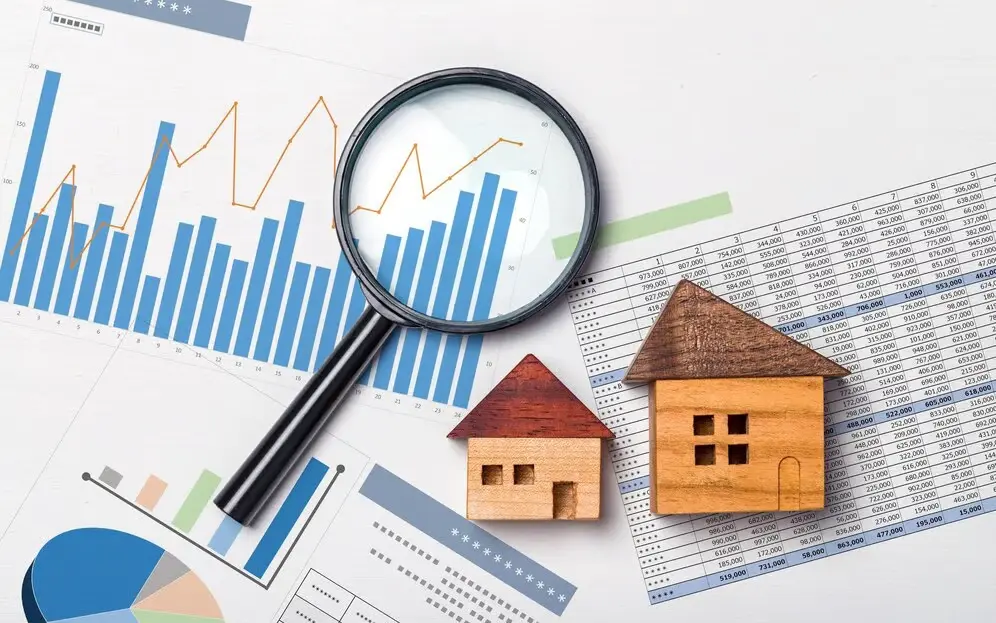The housing market in 2025 will be influenced by interest rates, supply constraints, and economic factors—making it vital to stay informed before making a move. Whether you’re a buyer, seller, or investor, understanding current and future real estate housing market trends can help you navigate decisions with confidence.

Content
Real Estate Market Trends You Should Know in 2025
Understanding real estate market trends is crucial in a market that’s constantly evolving. In recent years, we’ve seen demand shift from rural and suburban areas back to urban locations as people adapt to hybrid work.
Technology is also playing a bigger role. From virtual tours to AI-powered property evaluations, digital transformation is reshaping how properties are bought and sold in 2025.
Green features and sustainable construction are gaining momentum, too.
Housing Market Forecast 2025 – What Experts Predict
Looking at the housing market forecast 2025, experts expect home prices to grow steadily between 2-4%, depending on location and inventory availability. While the post-pandemic boom has cooled, housing demand still outpaces supply in many regions.

Construction activity is slowly increasing, but material costs and labor shortages continue to limit the pace of new builds. Homebuyers may face tight competition, especially in urban and affordable housing segments.
Is the Housing Market Going to Crash? Let’s Examine the Signs
Many wonder, is the housing market going to crash in 2025? While concerns persist due to inflation and rising costs, there’s little indication of an imminent collapse.
Unlike the 2008 crisis, today’s market has stricter lending regulations and stronger consumer equity.
Understanding the real estate bubble explained helps clarify these fears: a bubble typically bursts when speculative buying inflates prices beyond sustainable levels. Most analysts agree that while price corrections are likely, a total crash is not expected.
Key Factors Affecting the Real Estate Market Right Now
Several factors affecting the housing market in 2025 are worth watching. The top among them is mortgage interest rates. Elevated rates reduce purchasing power and can lead to price stagnation in certain regions.
Other factors include:
- Inflation and overall economic confidence
- Construction material costs and labor supply
- Government incentives or policy changes
- Investor activity, both domestic and international
Each of these plays a role in shaping buyer behavior and housing availability.
Understanding the Real Estate Market Cycle
To make strategic moves in 2025, understanding the real estate market cycle is key. The cycle moves through four phases:

- Recovery
- Expansion
- Hyper Supply
- Recession
Currently, we’re in the late expansion phase, with increased construction and a slowly stabilizing price environment.
By knowing where we are in the cycle, you can better assess whether it’s a good time to buy, sell, or hold property. Knowing the current real estate market conditions is vital before making a decision.
How Interest Rates Affect the Housing Market
It’s impossible to discuss the housing market without addressing how interest rates affect housing market activity. Mortgage interest rates directly impact affordability and demand.
In early 2025, average mortgage rates remain around 6.5-7%, slightly down from the 2024 peak. This slight relief is encouraging more buyers to return to the market, though some remain cautious.
Small rate changes can mean hundreds of dollars per month for buyers, significantly influencing purchasing decisions.
What Drives Housing Prices in Today’s Market?
If you’re asking what drives housing prices, the answer is multifaceted. Here are key drivers:
- Supply and demand imbalances
- Interest rates and mortgage accessibility
- Employment rates and wage growth
- Buyer demographics, including Millennials and Gen Z
- Investor demand in rental markets
External factors like zoning restrictions and infrastructure development can also play major roles in specific markets.
In 2025, affordability concerns and economic pressures are leading more people to rent, further impacting buyer behavior.
Tips for Buyers, Sellers & Investors in 2025
The current real estate housing market demands thoughtful strategy:
For buyers:
- Get pre-approved early
- Monitor interest rates
- Be flexible with location
For sellers:
- Stage your home for online viewings
- Price competitively to attract offers
- Consider buyer incentives like closing cost assistance
For investors:
- Focus on stable, cash-flowing markets
- Explore diversified options like REITs
- Watch for growth in second-tier cities with emerging job markets
Conclusion: The Future of the Real Estate Housing Market
The real estate housing market in 2025 is neither overly hot nor collapsing—it’s balancing. High interest rates, tight inventory, and cautious consumer sentiment will shape the year.
By staying informed about real estate market trends, watching the market cycle, and understanding the factors affecting housing market performance, you’ll be well-positioned to act wisely in this evolving space.
The Real Estate Housing Market continues to evolve with changing buyer demands, economic shifts, and investment opportunities. Whether you are a first-time buyer, a seasoned investor, or someone looking to sell, understanding current market trends is essential for making informed decisions. If you want to reach potential clients and grow your business in this competitive industry, you can Advertise With Us to gain maximum exposure and connect with a wider audience.
FAQs
What affects the housing market in 2025?
Interest rates, low inventory, inflation, and economic policies are key factors affecting the housing market in 2025.
Is a housing market crash expected in 2025?
A full crash is unlikely. Experts predict a price correction, not a collapse, due to strong equity and tighter lending rules.

With a passion for matching clients with their dream homes, Mary’s experience and knowledge of the real estate market make her a trusted advisor. She’s your go-to expert for buying or selling properties in the heart of the city.




